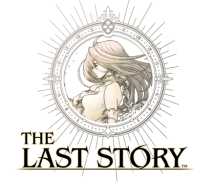6. A Game That Gives You Energy
Fujisaka-san, looking back on the lengthy development process, were there any particularly significant turning points?
I’d say it was when we made the city.
Why was that?
We created the city just as things were gradually starting to come together on the system side, and there was a real sense that if we kept this up, we’d get the job done.
Sakaguchi-san was employing different working methods for this title, so the dev team would have all been in the dark at first. When did the city start to come together?
It must have been around the start of 2009. It was quite early on.
Honestly speaking, I didn’t think that the city would end up with so much life in it. That’s all thanks to the team’s efforts.
So did you all pull together in order to surprise Sakaguchi-san?
We did! (laughs) It was just as we made the city that we finally started to see the direction Sakaguchi-san wanted us to go in, and what he meant when he said ‘Show the player this’ and ‘Get them to feel this’.
Ah, it’s really encouraging when you can share the sense of consistency in the direction of the development when you are working together with so many other people. It naturally spurs you on to explore and find out more, and from that point you can proceed without Sakaguchi-san telling you what to do.
That’s right.
Is there a particular turning point you can identify, Sakaguchi-san?
Hmmm...
A particular incident will do. (laughs)
An incident? Well, there was no shortage of incidents. I can’t tell you about them though. (laughs)
It simply isn’t possible to have a development process lasting three years that runs without a hitch! (laughs) In fact, without clashes and conflict, you’d lose the energy that’s so vital to the process.
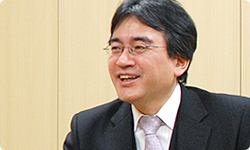
Yes, that’s right. We made a lot of changes over the course of the project. There was a kind of turning point just a few months ago, and people were saying to me: ‘The project’s in its final stage, and you really want to do this?’ But if I think changing something is going to make it more fun, I just can’t leave it alone. If it’s going to improve the game, I’ll change it. I refuse to compromise on that.
You’re the director at the centre of the game’s development, so in the end it’s your call.
That’s why time and time again…well, I would be rather demanding and want things my own way. It was particularly harsh on the programmers. But this team are a tough bunch.
Everyone’s morale remained high in spite of all these changes. How did you manage that?
How indeed... I think because we made this game starting with a prototype, it was always a work in progress, rather than the finished article. There were always these hidden problems, and when we’d fix one, the next problem would become visible.
So you wouldn’t be able to spot these problems until you’d fixed the one before.
Right. So we’d tackle these problems one by one, repeating this process over and over to hone it, and get it right. So I don’t think the team were simply following me. I think it would be better to describe them as all joining forces and struggling together.
So everyone shared this feeling that they had to keep working away at things until they were satisfied with the results.
Yes, they gradually all developed that habit. (laughs) Recently, they haven’t been satisfied with certain things and have pushed further until they’re happy with the results.
I can really feel that energy, with the whole team saying: ‘We’re going to make this game!’
I believe that’s the nature of creating a game. I was really able to feel that this time, joining the dev team after a long period away from the frontline. Sometimes I wonder if it should really be as much fun as it is.
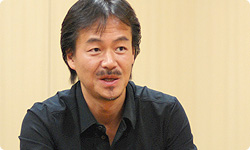
Now, there was a point where Nintendo didn’t approve of the scenario. Can you tell me about that?
Ah, yes. I got a serious knockback. (laughs) But I think that was a good thing. That became the first reset point for the project.
Ah... I found that pretty tough... (laughs)
Yes, it must have been tough.
I had already come up with a lot of the graphics, so I thought: ‘Oh no!’ (laughs) But the world I had originally come up with was a very bleak one, and I’m happy that it turned out as it has.
By simplifying the gameworld and giving it a fantasy setting, we were able to give the characters more depth. It’s actually easier to bring out realistic human dimensions in a fantasy setting.
So you made it a simple story in which the depth of the characters could be really brought out.
As a result of that, you can sense the lifelike nature of even the most casual chat in the city, which made the city more and more vibrant.
And that’s why your team weren’t able to stop working on the city... (laughs)
By trying to make the gameworld simple, it may have ended up becoming more complicated… (laughs)
That might be true! (laughs)
We achieved a real depth in the gameworld. That’s why I don’t bear any grudges about being made to reset things… (laughs)
(laughter)
In fact, I think the adjustments we made to the scenario turned out to be beneficial for the game system. The player fights alongside their allies, and this connects to the story which serves to flesh out these characters.
There’s a huge difference between fighting alongside NPCs14 who you can’t relate to, and doing battle beside individual characters who have real depth. 14 NPC stands for non-player character, referring to the characters in the game that the player does not control.
In this game, all of the characters are likable.
Finally, could you say a few words to the readers?
All I want is for people to actually play the game, to give it a try.
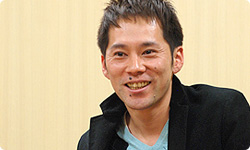
I’ve already mentioned this, but I want players to experience that particular feel the game has. Be it music, art, movies or novels, there are those works which give you energy. I hope that The Last Story is one of those, and nothing would make me happier than for players to get that kind of energy from this game.
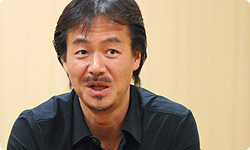
Having seen the game in motion, and spoken to you again today, I really feel this game has had energy poured into it in a way that is quite exceptional. Seeing how fired up Sakaguchi-san has been throughout this discussion, I felt strongly that you work in a way that allows you to be actually energised by the very games you are creating.
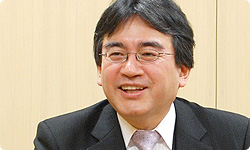
Thank you very much.
Thank you both for joining me today. Just one more push, and the game will be completed. Good luck with everything!
